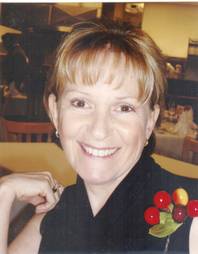Wednesday, Feb. 4, 2009 | 12:58 p.m.

Stefani Evans
How can we go further in our pursuit of genealogy?
Most genealogists go further by attempting to place their ancestors in social and historical context. But often we don't go far enough. We discover the most information about our most elusive ancestors because we have to work harder to extract information about them. We should, however, conduct deep research on all of our research targets. We need to ask why our ancestors made certain decisions and what significance those decisions held. We do not expect to agree with our ancestors, and we do not apologize for them. We do, however, owe them and ourselves the respect of presenting their history truthfully and completely so they do not appear as one-dimensional, celebratory cardboard-cutouts. Our ancestors were complex human beings whose troubles, prejudices, and decisions mattered.
Abraham Van Vleet (ca. 1783-1832) provides an example. He was a newspaper editor/publisher in Lebanon, Ohio, who used his bully pulpit to incite anti-Shakerism by publishing accounts of Eunice Chapman and Mary Dyer and their efforts to retrieve their children from the Shakers. According to historian Elizabeth A. De Wolfe, in Shaking the Faith: Women, Family, and Mary Marshall Dyer's Anti-Shaker Campaign, 1815-1867 (2002), "Van Vleet was a formidable force in western anti-Shaker sentiment" because his publications coalesced anti-Shakerism sentiment in eastern and western states. De Wolf provides the significance of Van Vleet's actions. I need to ask his motivation. Was Van Vleet afraid of the Shakers because so many elected to leave his society? Lebanon's Union Village Shaker leaders were former Presbyterians who followed their minister, Richard McNemar, into the sect; their actions decimated Lebanon's Presbyterian Church membership. Van Vleet was a Lebanon Presbyterian Church elder; did he publish the attacks to exact religious revenge? Extant Session records do not mention the Shakers. Perhaps Van Vleet had personal reasons for his antipathy. I found no known members of his family who joined the sect, but perhaps one of his daughters or sons flirted with the idea; perhaps Van Vleet or his wife did. Did he simply wish to make money through sensationalizing hate? It is possible; like many country printers, Van Vleet was chronically in debt and he supported a large family. Van Vleet acted freely and deliberately, and his actions affected many lives. I do my work injustice and I cheat history if I ignore his motivations, gloss over his baser actions and their significance, and list only his accomplishments.
Christine Sleeter, Professor Emerita, College of Professional Studies, California State University Monterey Bay, addresses the question of critical research in "Critical Family History, Identity, and Historical Memory," Educational Studies 43 (May 2008). A professor of education, Sleeter found some surprises when she researched her own family. She now requires her students (pre-service teachers) to complete a critical family history project to challenge their pre-conceived concepts of family. In Sleeter's view, the pre-service teachers who complete this exercise are better able to teach students of different races, cultures, and ethnicities when they have investigated and questioned their own history; she recommends the assignment for all pre-service teachers. Sleeter's approach to teaching critical family history is a call for genealogists to question the historical and cultural significance of their ancestors' actions and motivations, and to (continue to) view all evidence with a critical eye.
As with all our endeavors, we need to balance inquiry with sensitivity to the living. Inquiries we make of our long-deceased ancestors may not be appropriate to ask of parents, grandparents, or living relations. Only you can make that determination. However, we trivialize our work when we don't tell the story completely. Thanks to Tom Tinney Sr., who cited Sleeter's article on the Association of Professional Genealogists listserv.
Stefani Evans is a board-certified genealogist and a volunteer at the Regional Family History Center. She can be reached c/o the Home News, 2360 Corporate Circle, Third Floor, Henderson, NV 89074, or [email protected].

Join the Discussion:
Check this out for a full explanation of our conversion to the LiveFyre commenting system and instructions on how to sign up for an account.
Full comments policy